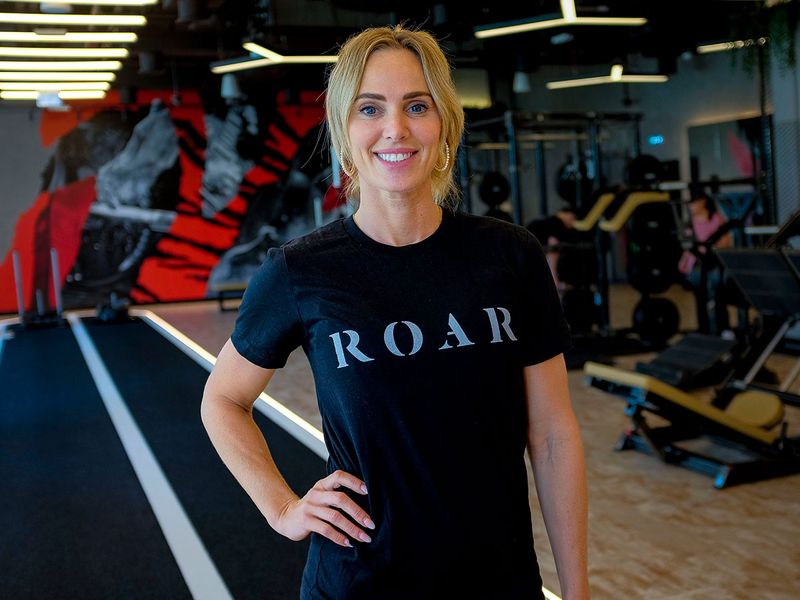
Dubai: Come weekends, and Dubai-based Aditya Goswami rises “super early”.
“I go for a jog on the open beach and then for a swim in the ocean,” he says.
Following a functional breakfast, he then hits the gym for a full body workout. “That’s on Saturdays. The workout is high intensity and involves a lot of endurance. I exercise with a group of people for around 45 minutes,” he says, adding that on Sundays, he goes in for strength training for an hour in the afternoons at the same gym.
Goswami is what you can call a weekend warrior. A research analyst who keeps busy all week, he says he looks forward to the weekends for his workouts. Like him, there are many others who have time or prefer to exercise only during the weekends as they find it difficult to maintain a daily regimen.
The reasons are many. They include time constraints due to work, family and social obligations; lack of motivation; travel; fatigue and physical limitations; and the sheer monotony of an everyday routine which can dampen enthusiasm over time.
But can workouts only during the weekends be effective?
Sarah Lindsay, former Olympian and founder of ROAR, a personal training centre in Dubai, says, “Ideally, one must work out frequently. But if you only have the weekends, you have the weekends only, and you have to make the most of it.”

She says, “Whatever your programme is, your body will adopt to it. Your regime will depend on the time you have and the goals you have set. If it was me, given that I am a bit older and in my 40s, I would do a cardio session in the morning and weights in the evening.”
According to Dr Zeynep Zehra Gumus, Specialist Internal Medicine, Aster Royal Clinic, Springs Souk, guidelines recommend 150 minutes of moderate to vigorous physical activity (MVPA) per week to maintain optimal health.
“This can be distributed across multiple days or even concentrated over one to two days (weekend warrior style). For steps, a target of 7,000–10,000 steps per day is generally recommended. Moderate activities (brisk walking, cycling) or vigorous activities (running, aerobics) can be performed. Vigorous exercise should be at 75 minutes per week if replacing moderate intensity,” she advises.
She cites a recent study from the UK with almost 90,000 participants that showed weekend workouts could confer similar cardiovascular benefits as evenly distributed exercises over the week.
“This approach helps people with busy schedules to meet the recommended 150 minutes of MVPA without engaging in daily workouts. It is an effective solution, especially for cardiovascular health, but consistency in weekly totals is crucial,” she notes.
The benefits, she explains, are quantifiable.
Giving examples, she talks of a 40-year-old man who could not exercise on weekdays due to work commitments but started on a weekend regime. He performed a combination of brisk walking and strength training for 2.5 hours on Saturdays and Sundays. Over six months, he improved his cardiovascular fitness, reduced his cholesterol levels, and lost 5kg.

In another case, a 35-year-old woman with a sedentary desk job dedicated her weekends to high-intensity interval training (HIIT) and cycling. Within a year, she saw significant improvements in her endurance, dropped her resting heart rate, and reduced her risk of heart disease.
But is there a danger of overload during weekend-only workouts?
Dr Gumus says, “Overloading physical activity into a short time period may increase the risk of muscle strains, joint injuries and overuse injuries (e.g., tendinitis, stress fractures). For untrained individuals, intense workouts without gradual adaptation can place undue stress on the heart. There’s also the Delayed-Onset Muscle Soreness (DOMS). Intense exercise over two days may lead to muscle pain that can last for several days, discouraging regular activity, if not done correctly.”
Weekend warrior Deepesh KV knows that only too well. The 40-year-old marketing professional with a Dubai-based healthcare group, says he would clock in four-five hours of sports activity - badminton – over two days during the weekend for four-five years.
“That took a toll on my body. I had to stop it as I sustained sports injuries,” he lets on.
Deepesh says even now, he has time only during the weekends for exercise, but he has learnt to strike a balance with his two-day workout regime.
“I try and keep it flexible, sometimes running on Mamzar Beach, and at other times, hitting the gym for some cardio and strength training,” he explains.
Like any fitness programme, dietary adjustments are also crucial with weekend-only workouts.
Dr Gumus puts it in perspective.
“Daily exercisers often burn calories more consistently throughout the week, meaning they can consume more on a regular basis. Weekend warriors, however, may need to be more mindful of their calorie intake during the inactive days of the week to avoid weight gain, as their energy expenditure is lower on those days,” she explains.
Macronutrient timing also needs to be factored. “For weekend warriors, it may be beneficial to focus on carbohydrate intake around their workout days to fuel the intense activity and aid recovery. On the less active days, reducing carbohydrate intake and focusing more on proteins and healthy fats can help maintain balance and prevent energy storage as fat.
Due care also needs to be taken with regard to protein requirements, hydration and electrolytes and overall nutritional balance.
“For weekend warriors, it is crucial to consume adequate protein, particularly after workouts, to support muscle repair and recovery. This is to prevent muscle breakdown, especially with more intense, sporadic workout sessions. Similarly, intense exercise concentrated on weekends can lead to significant fluid and electrolyte loss. It’s important to maintain good hydration practices throughout the week and not just on workout days, to stay properly hydrated and support metabolic functions,” she says.
“Since weekend warriors tend to have concentrated periods of physical activity, their diet throughout the week needs to ensure they receive balanced nutrition—adequate vitamins, minerals, and antioxidants to support recovery, immune function, and general well-being,” she adds.
Recommended weekend workouts
Cardio (walking, running, cycling): Improves heart and lung health, enhances endurance and aids in fat loss.
Strength training (weights, resistance exercises): Builds muscle mass, increases metabolism, improves bone density, and enhances overall strength.
Flexibility and balance workouts (yoga, stretching): Enhances range of motion, reduces injury risk and supports joint health.
High-intensity interval training (HIIT): Combines cardio and strength training to boost metabolism, burn fat and improve cardiovascular health in a shorter time.















